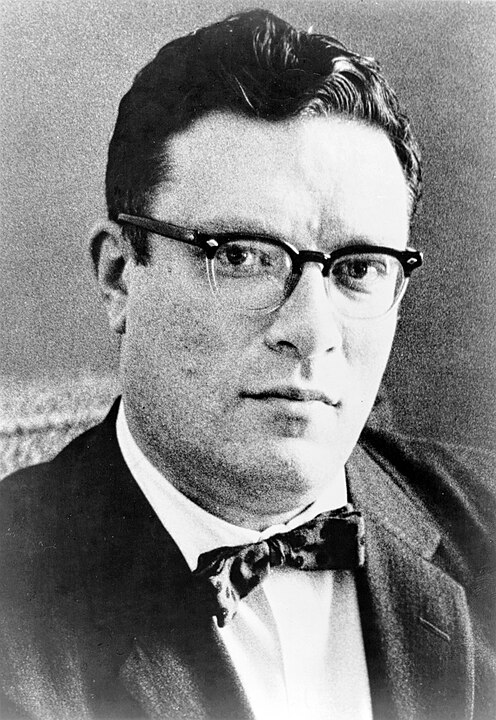Isaac Asimov: A Prolific Science Fiction Writer
Isaac Asimov (c. January 2, 1920 – April 6, 1992) was an American writer and professor of biochemistry at Boston University. He was known for his works of science fiction and popular science. Asimov was a prolific author, writing or editing more than 500 books and an estimated 90,000 letters and postcards. His most famous work is the Foundation series, which, along with the Galactic Empire and Robot series, forms a significant portion of his science fiction universe.

Photo by Phillip Leonian [1] from New York World-Telegram & Sun.[2] - United States Library of Congress. New York World-Telegram and the Sun Newspaper Photograph Collection. Call number: NYWTS - BIOG–Asimov, Isaac, Dr. <item> [P&P]. Reproduction number: LC-USZ62-115121, Public Domain, Link
Early Life and Education
Asimov was born in Petrovichi, Russia, and immigrated with his family to the United States at the age of three. He grew up in Brooklyn, New York, where his parents owned a series of candy stores. Asimov taught himself to read at a young age and developed a passion for science fiction through the pulp magazines sold in his family’s stores. He earned a Bachelor of Science degree in chemistry from Columbia University in 1939, followed by a Master of Arts in 1941, and a Ph.D. in biochemistry in 1948.
Writing Career
Science Fiction
Asimov began his writing career with short stories, with his first published work appearing in 1939. He gained prominence with his Foundation series, which explores the rise and fall of galactic civilizations and introduces the concept of “psychohistory,” a mathematical framework for predicting societal trends. Another significant contribution is his Robot series, where he formulated the “Three Laws of Robotics,” ethical guidelines designed to govern robot behavior.
Popular Science
Beyond fiction, Asimov was a renowned science communicator. He authored numerous popular science books, making complex subjects accessible to the general public. His works covered a wide range of topics, including chemistry, physics, astronomy, mathematics, history, and biblical studies.
Personal Life
Asimov married Gertrude Blugerman in 1942, and they had two children, David and Robyn. The couple divorced in 1973, and later that year, Asimov married Janet Opal Jeppson, a psychiatrist and writer.
Death
Isaac Asimov died on April 6, 1992, in New York City.
Legacy
Asimov’s influence extends beyond literature. His ideas have impacted robotics, artificial intelligence, and popular culture. The asteroid (5020) Asimov and a crater on Mars are named in his honor. His works continue to inspire adaptations in various media, including film and television.
Note: This post is based on publicly available information from Wikipedia.